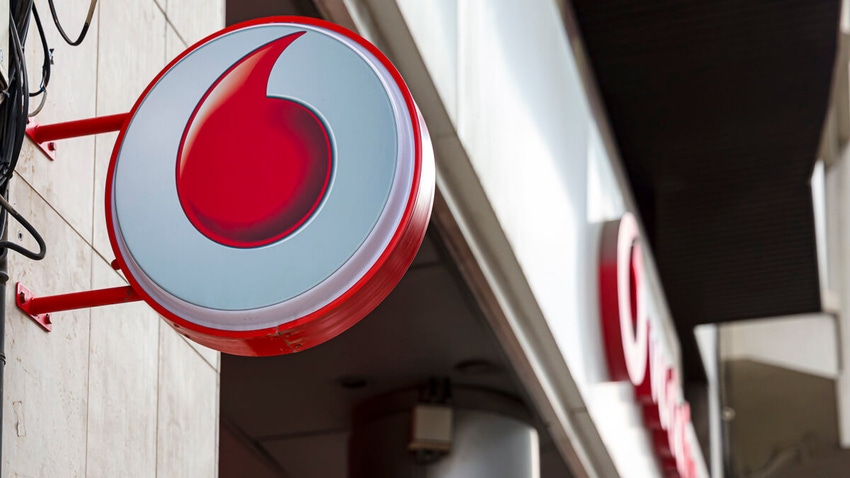Eurobites: Vodafone trials open RAN in Italy with Nokia
Also in today's EMEA regional roundup: Orange lands key cable in Marseille; ETNO dusts off its crystal ball; FT strikes ChatGPT deal with OpenAI.

Nokia and Vodafone say they have successfully completed an open RAN trial in Italy on Vodafone's live 5G standalone network. The trial combined Nokia's AirScale Massive MIMO radios with baseband software running on Dell PowerEdge XR8000 servers and Red Hat OpenShift, a hybrid cloud application platform powered by Kubernetes, connected to Nokia's standalone dedicated 5G core. Nokia's MantaRay networks management system provides an overview of the whole shebang. Vodafone says it intends to have 30% of its European masts based on open RAN by 2030.
In the UK, meanwhile, Vodafone has introduced new broadband packages that combine a Power Hub router with mesh Wi-Fi 6 technology. The new router offers speeds of up to 910 Mbit/s and, says Vodafone, can connect up to 100 smart devices. Package prices start from £26 (US$32) a month.
Orange has landed a key subsea cable in Marseille as part of a cable system that will ultimately link France to Singapore. The 21,700km Sea-Me-We 6 (Southeast Asia-Middle East-Western Europe 6) system will offer a capacity of more than 130 Tbit/s. During the landing process, Orange's engineers were at pains not to unduly disturb sensitive maritime areas, such as the Posidonia seagrass meadows and the Marseille underwater canyon. In particularly sensitive areas, special anchors will be used to avoid "drag," which can be harmful to subsea habitats.
How sustainable can telecom be? And how will greener, smarter ways of working affect telecom workers' lives? These are just two of the questions posed in a new research report jointly produced by ETNO, the European telecom trade association, and UNI Europa ICTS. It puts open RAN under the spotlight, claiming that it is "proving controversial regarding its sustainability." Its widespread implementation would, say the authors, "lead to an ecosystem of relatively small-scale suppliers" and therefore fragmentation, which would "make environmental targets harder to regulate and control from the telcos' side." It also looks at how 5G fits into the overall picture, lamenting the shortage of telecom workers with the skills required to build and maintain 5G infrastructure.
Nordic operator Telenor saw first-quarter EBITDA (earnings before interest, tax, depreciation and amortization) climb 6.9% year-over-year, to 8.5 billion Norwegian kroner ($771 million), on total revenues that rose 2% in organic terms, to NOK19.45 billion ($1.76 billion). Coping with cyberattacks on its customers is becoming an increasing challenge for the company – Telenor reckons it stopped more than 500 million such attacks in the first three months of the year.
The European Commission has designated Apple's iPadOS operating system as a tech "gatekeeper" under the terms of the Digital Markets Act (DMA). Gatekeepers, in this context, are large digital platforms that provide such an important crucial gateway between business users and consumers that, in the Commission's eyes, they must comply with a special set of stringent regulations relating to how they interact with their users. Apple now has six months to fully comply with its obligations under the Act as applied to iPadOS.
The Financial Times newspaper has signed a deal with OpenAI under the terms of which the creator of the all-conquering ChatGPT GenAI tool can draw on the FT's content to answer queries using summaries effectively provided by the newspaper's human scribes. As Reuters reports, the deal follows similar agreements struck between OpenAI and other publishers, the Associated Press among them, over the past few months.
Let's hear it for Alison Houston, who is retiring from Openreach after 50 years' service – a stretch that, says Openreach, makes her Scotland's longest serving operator-turned-engineer. Alison, 68, followed her father into the company – then known as the General Post Office (GPO) – in 1974, when Lord Lucan had gone missing and the Watergate scandal raged in the US. As for Alison's retirement plans: "I'm contemplating buying a wee house with a garden and maybe getting a wee dug, as they say in Glasgow, and take them for walks. I'll annoy the Openreach engineer that's working at the local street cabinet and say, 'I used to do that, so I'll tell you how to fix it.'" You won't get that from AI.

Alison Houston: 50 years' faithful service to telecom. (Source: Openreach)
Read more about:
EuropeAbout the Author(s)
You May Also Like











